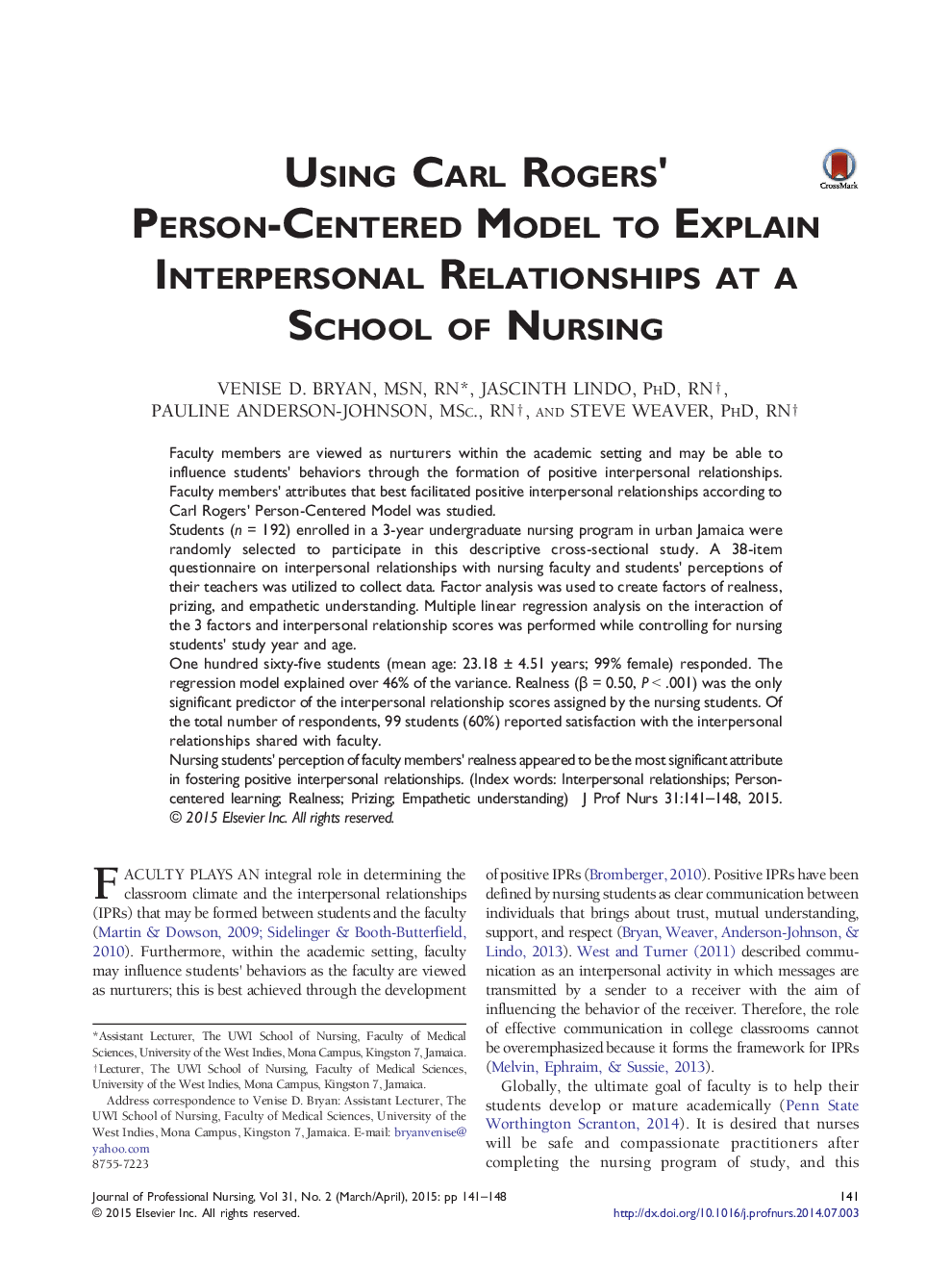| کد مقاله | کد نشریه | سال انتشار | مقاله انگلیسی | نسخه تمام متن |
|---|---|---|---|---|
| 2670840 | 1141313 | 2015 | 8 صفحه PDF | دانلود رایگان |
Faculty members are viewed as nurturers within the academic setting and may be able to influence students' behaviors through the formation of positive interpersonal relationships. Faculty members' attributes that best facilitated positive interpersonal relationships according to Carl Rogers' Person-Centered Model was studied.Students (n = 192) enrolled in a 3-year undergraduate nursing program in urban Jamaica were randomly selected to participate in this descriptive cross-sectional study. A 38-item questionnaire on interpersonal relationships with nursing faculty and students' perceptions of their teachers was utilized to collect data. Factor analysis was used to create factors of realness, prizing, and empathetic understanding. Multiple linear regression analysis on the interaction of the 3 factors and interpersonal relationship scores was performed while controlling for nursing students' study year and age.One hundred sixty-five students (mean age: 23.18 ± 4.51 years; 99% female) responded. The regression model explained over 46% of the variance. Realness (β = 0.50, P < .001) was the only significant predictor of the interpersonal relationship scores assigned by the nursing students. Of the total number of respondents, 99 students (60%) reported satisfaction with the interpersonal relationships shared with faculty.Nursing students' perception of faculty members' realness appeared to be the most significant attribute in fostering positive interpersonal relationships.
Journal: Journal of Professional Nursing - Volume 31, Issue 2, March–April 2015, Pages 141–148
